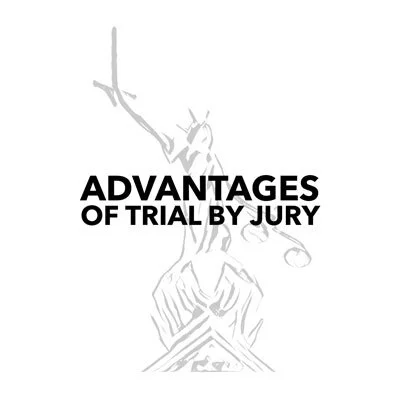The Pros & Cons of Jury Trial
All Contents > Which court will I go to? > Should I elect trial by jury? > Magistrates’ Court Trial > Crown Court Trial
“There are a number of factors to take into account in deciding whether to elect trial in the Crown Court and have a jury reach a verdict in your case, or instead to let the magistrates or a District Judge decide upon the verdict of guilty or not guilty. ”
On this page:
Trial by Jury
Do I have a right to trial by jury?
What happens at a jury trial in the Crown Court?
What are the pros and cons of jury trial?
Advantages of jury trial
Disadvantages of jury trial
Trial by Jury
Trial by jury is only available in the Crown Court. In the magistrates’ court, trials are heard by either magistrates or a District Judge.
There are a number of factors to take into account in deciding whether to elect trial in the Crown Court and have a jury reach a verdict in your case, or instead to let the magistrates or a District Judge decide upon the verdict of guilty or not guilty.
Do I have a right to trial by jury?
You do not always have a right to trial by jury. It depends on the type of offence you are charged with:
If you are charged with a Summary Offence you can only be tried in the magistrates’ court;
If you are charged with an Either-Way Offence you can be tried either in the magistrates’ court, or by a jury in the Crown Court. The magistrates’ court will decide where the case will be tried, although you can always elect trial by jury.
If you are charged withg an Indictable-Only offence you can only be tried by a jury in the Crown Court.
If you are under 18, you do not have the right to choose trial by jury. The overwhelming majority of cases involving juveniles are dealt with in the Youth Court and only those cases that are particularly serious or which also involve adult defendants can be sent to the Crown Court. You can find more information about Youth Courts below.
You can find out here what type of offence you are charged with.
What happens at a jury trial in the Crown Court?
For detailed information on jury trial in the Crown Court go to our Crown Court trial guide >>
For detailed information about trial in the magistrates’ court go to our magistrates' court trial guide >>
What are the pros and cons of jury trial?
If you are charged with an either-way offence and the magistrates/District Judge accept that they can try the offence in the magistrates’ court, it is then up to you to either agree to have your trial in the magistrates’ court or to elect trial in the Crown Court.
There are pros and cons to consider before you make your choice. Not everyone agrees, but many lawyers who have acted for clients in the magistrates’ court and the Crown Court share similar views. What follows incorporates many of these views and is a rough guide to the advantages and disadvantages of trial by jury.
What are the advantages of jury trial?
LINKS BELOW TO MORE …
More about Trials, Appeals and Sentencing …
Youth Courts are Different
The information on this page relates to adults. For youths (under 18s) different rules apply about where their trial will take place.
The vast majority of youth trials are heard in the Youth Court which is specially designed to cater for younger people facing a wide range of offences.
The Youth Court is similar to the adult magistrates’ court (and cases are heard either by a District Judge or magistrates, who are specifically trained to hear youth cases), except proceedings are less formal and there are restrictions on what can be reported and on public access to the courtroom.
Unlike adults, youths do not have the right to elect trial by jury.
Occasionally, however, a youth will have a trial by jury in the Crown Court. The main reasons for this happening include when:
The youth is jointly charged with an adult whose case is sent for trial to the Crown Court (this will only happen when it is considered in the interests of justice for the youth and adult to be tried together);
The youth faces a very serious charge, including murder, attempted murder and manslaughter or other serious offences known as ‘grave crimes’, or the youth is considered particularly dangerous.
Youths will only be tried in the adult magistrates’ court (instead of the Youth Court) where they are jointly charged with an adult defendant whose trial is being heard in that court.
More information about Youth Courts
…
Subscribe for more

















